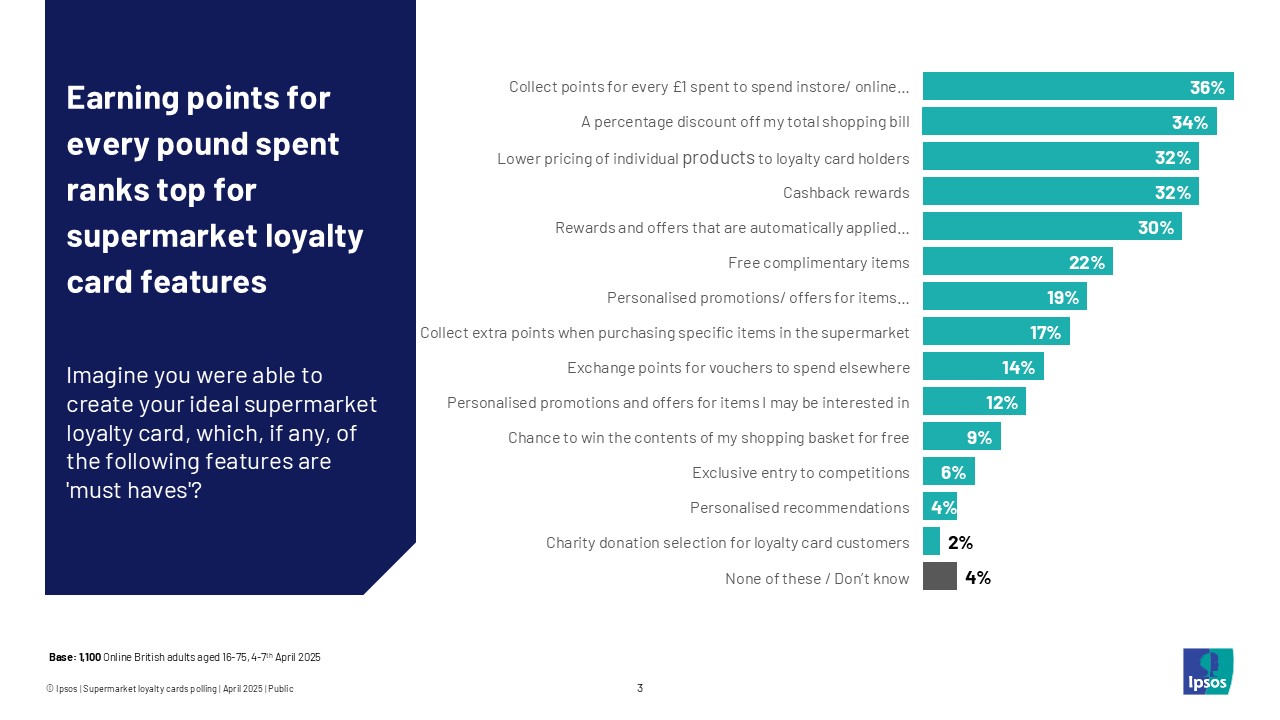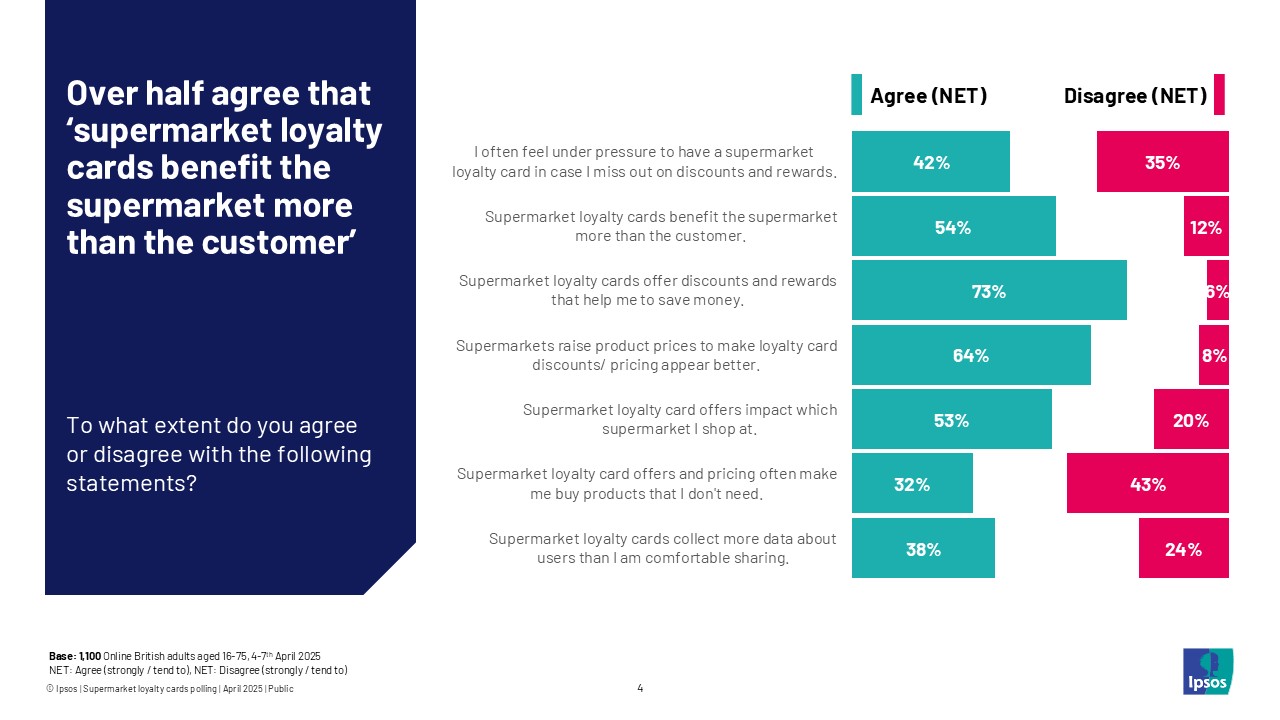Are loyalty cards stacked in the Supermarket’s favour? More than half of Britons say supermarket loyalty cards benefit the supermarket more than the customer
New research from Ipsos in the UK reveals surprising insights into British shoppers’ usage and perceptions of supermarket loyalty cards.
Key findings
- Widespread usage, divided loyalty: While 95% of Britons aged 16-75 possess at least one supermarket loyalty card, nearly 4 in 5 (79%) use multiple cards, suggesting that true loyalty to a single supermarket is rare.
- Value for money a top priority: When asked about their ideal loyalty card features, the most popular choice was “collect points for every £1 spent” (36%), followed by a percentage discount off the total bill (34%) and lower pricing on individual products (32%). This highlights the importance of tangible monetary benefits for consumers.

- Scepticism towards supermarket motives: Although just over half (53%) of Britons say that loyalty cards impact where they shop, a similar proportion (54%) feel that supermarket loyalty cards benefit the supermarket more than the customer. In addition, almost two thirds (64%) believe supermarkets raise product prices to make loyalty card discounts appear more attractive.

- Data privacy concerns: Almost four in ten (38%) Britons are uncomfortable with the amount of data supermarkets collect through loyalty card schemes.
Commenting on the findings, Ekaterina Mincheva at Ipsos said:
Our latest research reveals a complex relationship between British shoppers and supermarket loyalty schemes. While almost everyone owns a loyalty card, the vast majority use multiple cards, suggesting that consumers see more value in playing the field, rather than settling down with just one scheme. Although shoppers are drawn to the promise of savings and rewards, there's a significant undercurrent of cynicism, with many believing that supermarkets manipulate prices and prioritise their own profits over customer value. This tension, coupled with growing data privacy concerns, presents a clear challenge for supermarkets. To truly build loyalty, they must offer genuine value and address consumer anxieties about data usage.
Technical note:
- Ipsos Observer interviewed a representative quota sample of 1,100 adults aged 16-75 in Great Britain using its online i:omnibus between the 4th-7th of April 2025. The sample obtained is representative of the population with quotas on age, gender, region and working status.
- The data has been weighted to the known offline population proportions for age, working status and social grade within gender, and for government office region and education, to reflect the adult population of Great Britain. All polls are subject to a wide range of potential sources of error.



